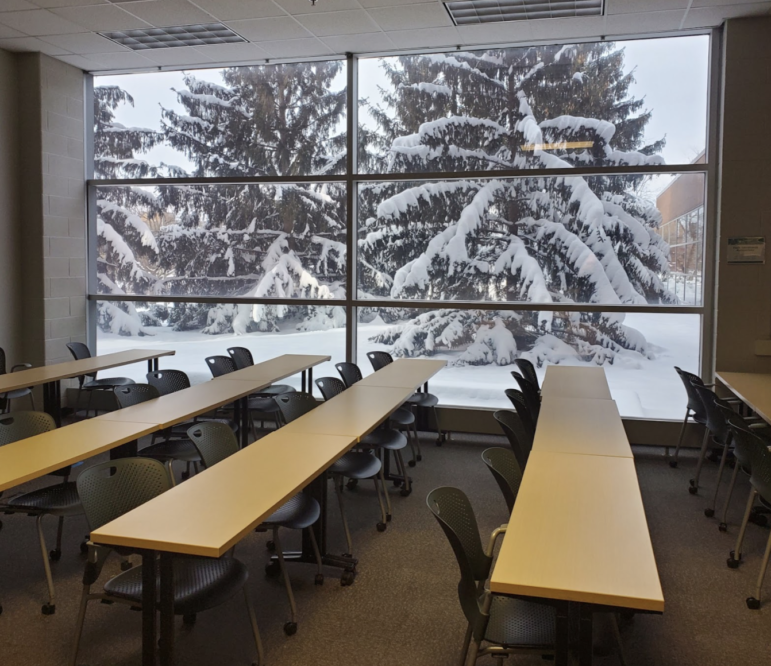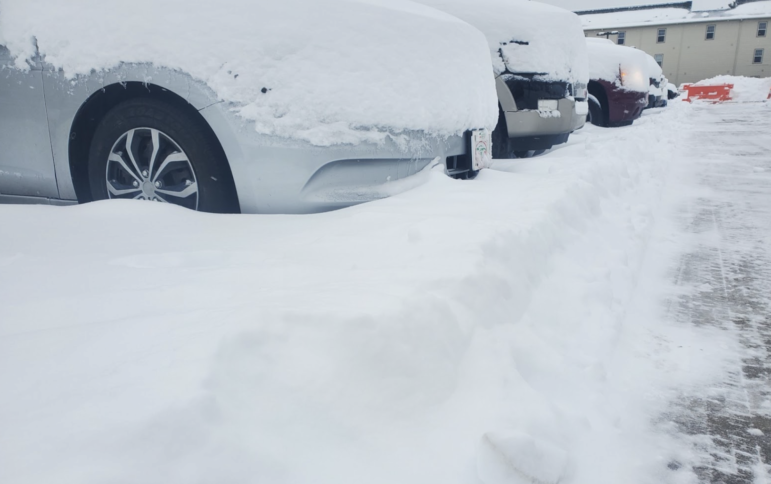
Anna V. Spidel
A classroom in the MSU biomedical and physical sciences building overlooks a snow-covered conifer.After the announcement of a snow emergency for the cities of Lansing and East Lansing on Tuesday morning, the area experienced snow accumulation of up to 13.3 inches. For residents with places to be, this kind of heavy snowfall can make transportation tricky.
Despite the harsh conditions, Michigan State University opted not to cancel in-person classes, leaving off-campus students with a challenge. For students at some apartment communities, such as Hannah Lofts and The Lodges, access to private shuttles became crucial.
Indian Trails Inc., which provides shuttles for the two communities, continued normal operations at Hannah Lofts and The Lodges throughout the week of the storm. According to Indian Trails President Chad Cushman, this is due to a unique contract.
“Typically, it’s built into the contract that as long as the university is holding classes, then we will operate, of course, weather permitting,” said Cushman.

Anna V. Spidel
Cars parked in the Hannah Lofts parking structure (pictured above) were barricaded by snow after plows came through the structure.Despite the call to keep the shuttles running at the student living communities, Indian Trails suspended most other operations on Wednesday, Feb. 2 and Thursday, Feb. 3. On January 31, the company made the call to cancel its popular Michigan Flyer airport service, as well as most scheduled services and contract shuttles in the Lower Peninsula for the duration of the storm.
Because of the unique contractual agreement between Indian Trails and the apartment communities, shuttles at Hannah Lofts and The Lodges were able to safely transport students to their classes Wednesday and Thursday. Cushman, who says that safety is the company’s top priority, says this decision was made after careful consideration.
“We’ll evaluate it. I mean, if the roads certainly are not passable at all, we wouldn’t operate,” said Cushman. “But, you know, we just have to handle it on a case-by-case basis.”